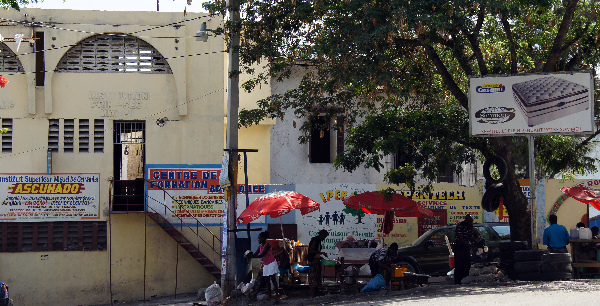While preparing the class I taught [1] at the Faculté d’Ethnologie of the Université d’État de Haiti, I stumbled again on one of those sentences that make Rancière so powerful:
Language does not unite people. On the contrary it is the arbitrariness of language that makes them try to communicate by forcing them to translate—but also puts them in a community of intelligence. (Rancière [1987] 1999 : 58)
Haiti, of course, is famous for a creole forged by the need to translate what others from around the world, often with the worst of motivations, were saying and then to do whatever new conditions might allow (a successful war against a colonial power), or require (a devastating earthquake). Living together in such conditions will put people in a “community of intelligence”—and will keep them there, at work, for a creole forged by contingent circumstances will itself become a language, Creole, that is arbitrary by its very nature as a language and so cannot unite people as it forces them, again, to try and communicate, try and survive in the new conditions of which it is now a part.
I thought about all this when reading Jonathan Katz’s [2] passionate account of the 2010 earthquake and of the many blunders of the “international community” who ostensibly “came to help” but may have made things much worse (Katz 2013). Much of what he had to say about the famous (Bill Clinton, Sean Penn) and the less famous politicians, policy makers, staff of NGOs, confirmed what I started learning through Scott Freeman’s dissertation on the role of NGOs in the non-development of Haiti’s rural population. This, I learned, is now a theme in the anthropology of NGOs and their environmental impact.
One passage in Katz’s book struck me particularly. It has to do with the figures generally quoted by the “international community” regarding unemployment in Haiti. As Katz say, most of what Haitian actually do does not count as employment. Graphically, who in this photograph is employed? (besides the photographer)
 [3]
[3]At least four of the seven people visible are clearly active making something (it is not clear what the others are doing). Everything is orderly. The garbage is bagged, debris is piled, the tires are stacked. In the background, there is what appears like a repurposed state school into an “Institut Superieur” and/or a “Centre de Formation Appliquee.” Even the advertisement of what may be an expensive mattress required extensive work to put it there. Putting it here, in a not very prosperous neighborhood, is an act of multiple arbitrariness: Who put it there? Who is the intended audience? What do the people in the photograph make of it?
Looking at the picture made me think of Kiran Jayaram’s dissertation (Columbia 2014) on Haitian migrants to Santo Domingo: determined intelligence in the worst of conditions when physical survival is immediately at stake.
About all the streets of Port-au-Prince I drove through are lined by such stands as in the photograph. Are they classified as “small businesses” rather than “employment” in certain statistics? The important thing is that the stands are there, with the people who put them up, and the people who use them, together at work. Katz reports that they reappeared in the first days that followed the earthquake even as the people were actively digging for survivors, and then reconstructing—when they were not hindered by efforts to help that create more catastrophic conditions, and more moments for the convening of “communities of intelligence.”
When the arbitrary occurs (earthquake, food distributed here but not there, diseases imported, new languages added to the mix, etc.) human beings will get together and translate. It is time to pay attention and bring out intelligence over disfunction, achievement over failure, heroic bricolage over engineering deficiencies.
Publicizing this work has to be the way to counter “culture of poverty” approaches to the plight of people in dire condition, whether in Haiti or elsewhere.
References
Katz, Jonathan 2013 The Big Truck That Went By: How the World Came to Save Haiti and Left Behind a Disaster. New York: Palgrave Macmillan
Rancière, Jacques 199 The ignorant schoolmaster: Five lessons in intellectual emancipation [4]. Tr. by K. Ross. Stanford, CA: Stanford University Press. (First published in 1987)